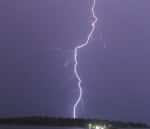Many people will find any tax refund they receive after last financial may be chewed into by electricity price increases this fiscal year.
The carbon tax increases on Monday from $23 to $24.15 a tonne, which will flow on to various goods and services such as electricity. While most households receive some form of compensation, whether they salt it away to help pay for bigger power bills is another matter.
But the carbon tax is a bit player in electricity price rises – various other factors are the major culprits and will drive electricity prices even higher this financial year.
According to The Advertiser, households in South Australia will need to factor into their annual budgets electricity bill increases of more than $100 from Monday – and there is the possibility of additional increases in December.
Queenslanders are also staring down the barrel of price hikes – increases of up to 22%.
In Victoria, the average electricity bill will rise by 21 per cent, or about $300 a year says the Herald Sun.
The Australian says the situation in New South Wales isn’t so dire, with a price rise of 1.7% kicking in from Monday. Still, it adds to the pain of a 79% increase between 2007 and 2012, followed by a further jump of 11.8% to 20.6% across different NSW electricity supply regions last financial year.
In Tasmania, the situation is more confusing – but the state’s Opposition says many people will be paying 3 per cent more for their power from Monday.
In Western Australia, the botched refurbishment of the Muja Power Station and an increase in the price of wholesale gas are expected to have an impact on household power prices.
The recent history of Australian electricity price rises is truly shocking (no pun intended); resulting in more households turning to solar power. However, those considering generating some or all of their power via solar panels should consider taking action soon as incentives in some states will again be slashed.
While going solar used to mean a substantial up-front capital investment; national solar provider Energy Matters has broken down that barrier with the recent introduction of its Zero Deposit Solar payment plan.












































